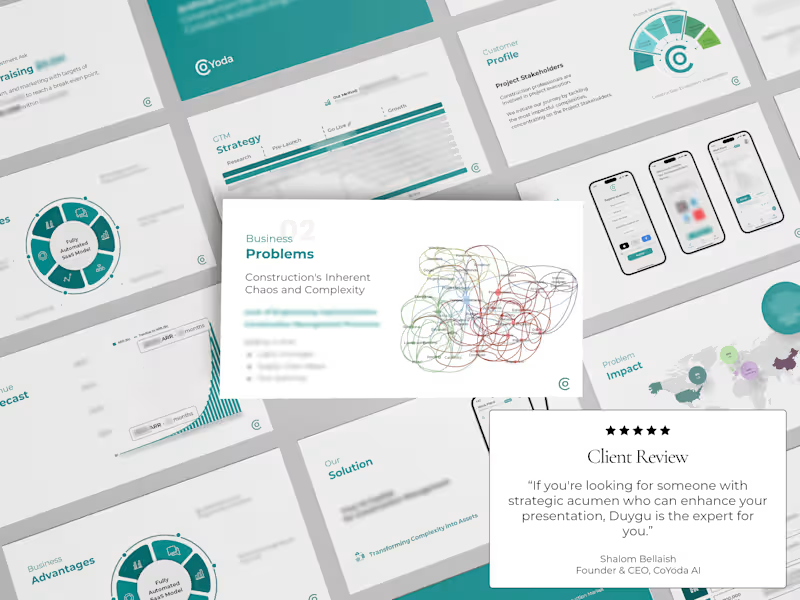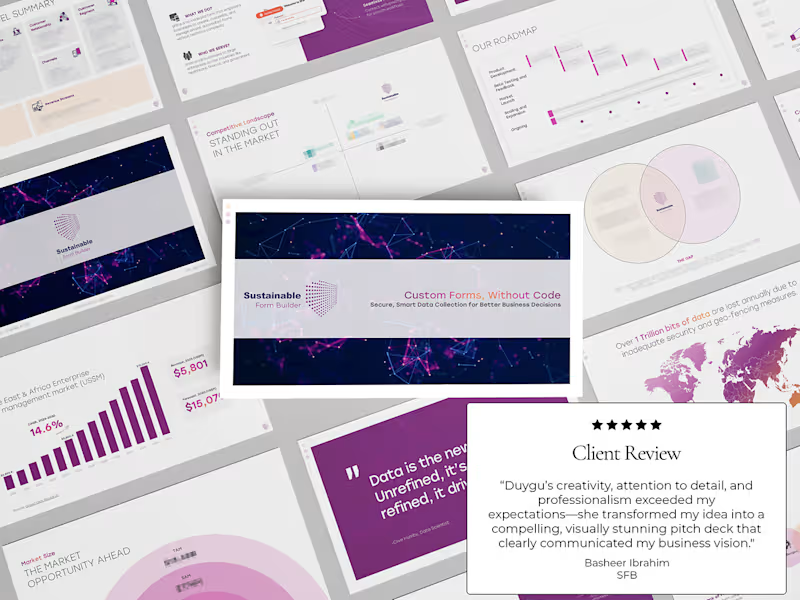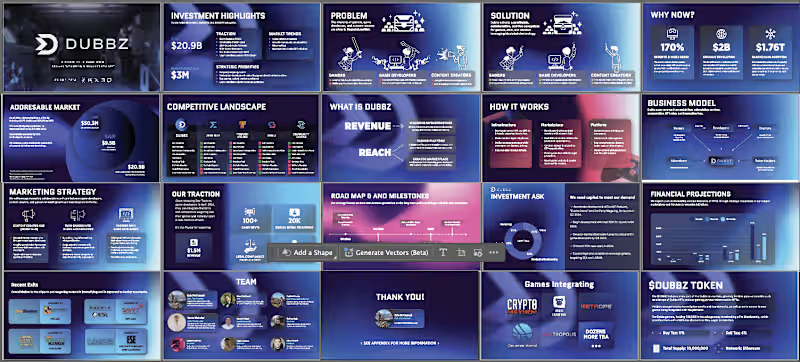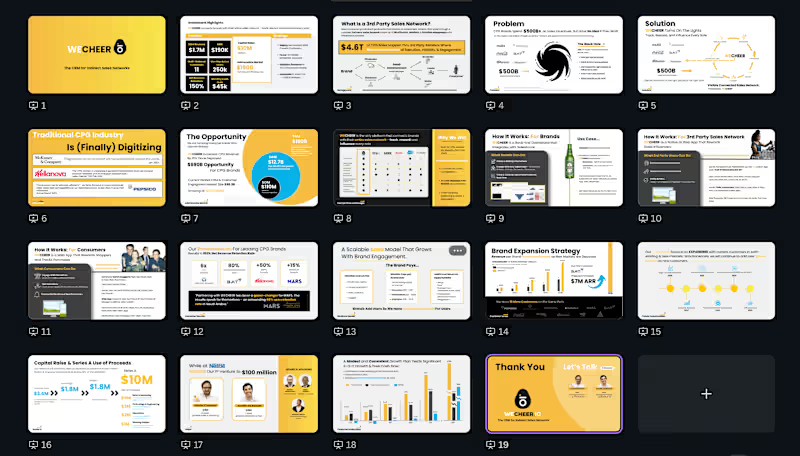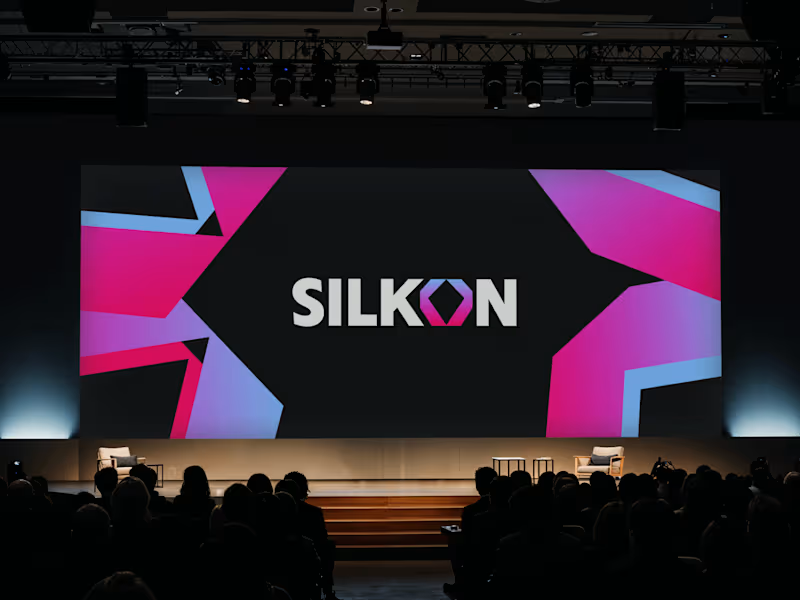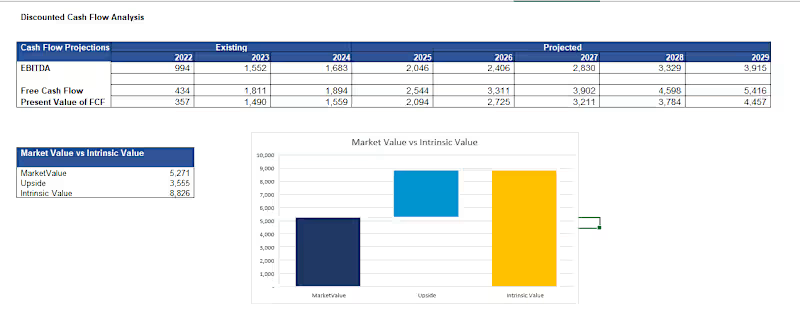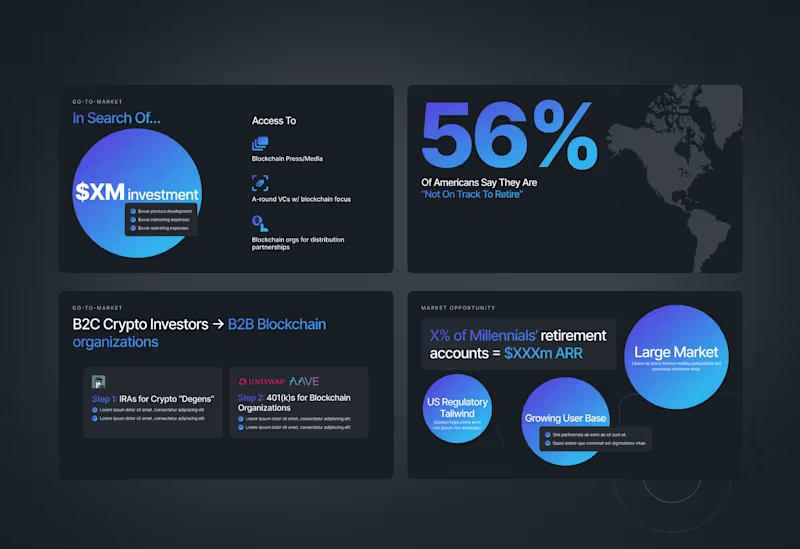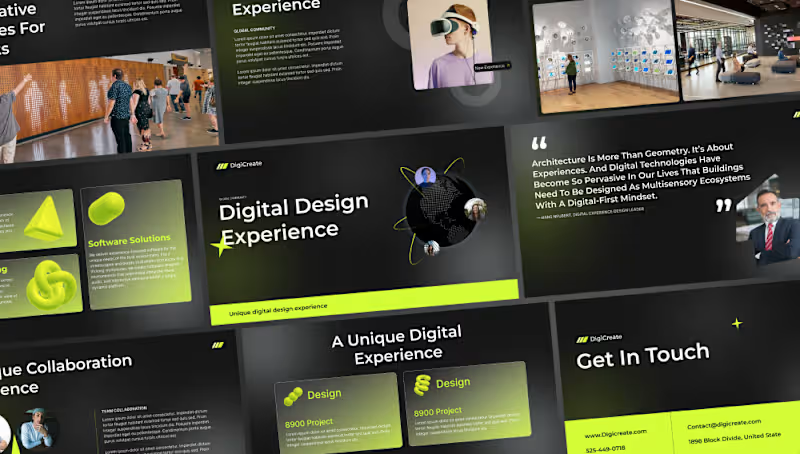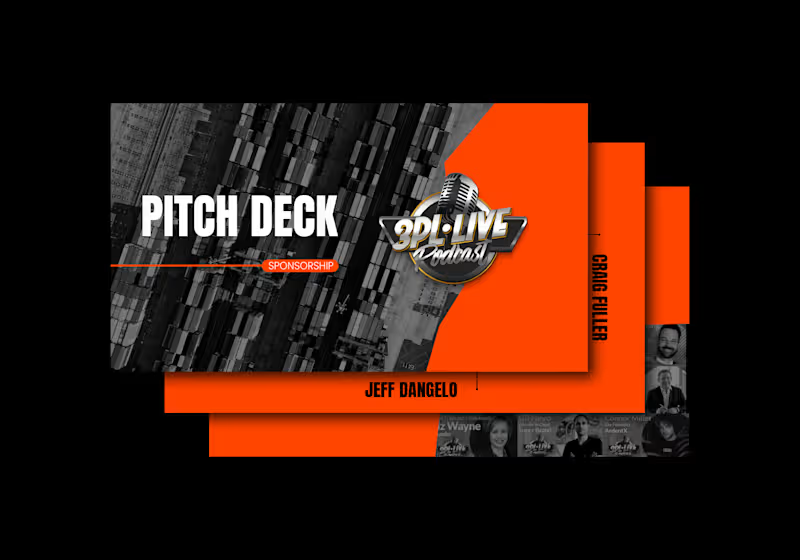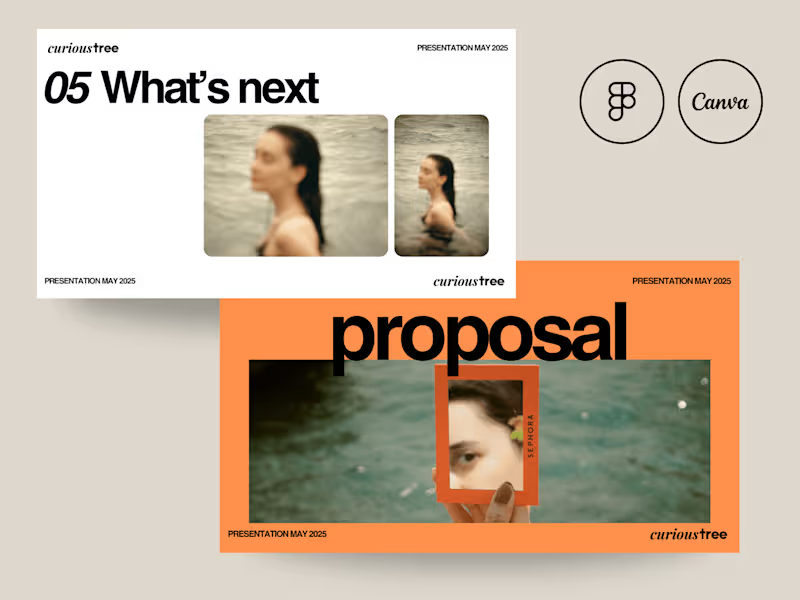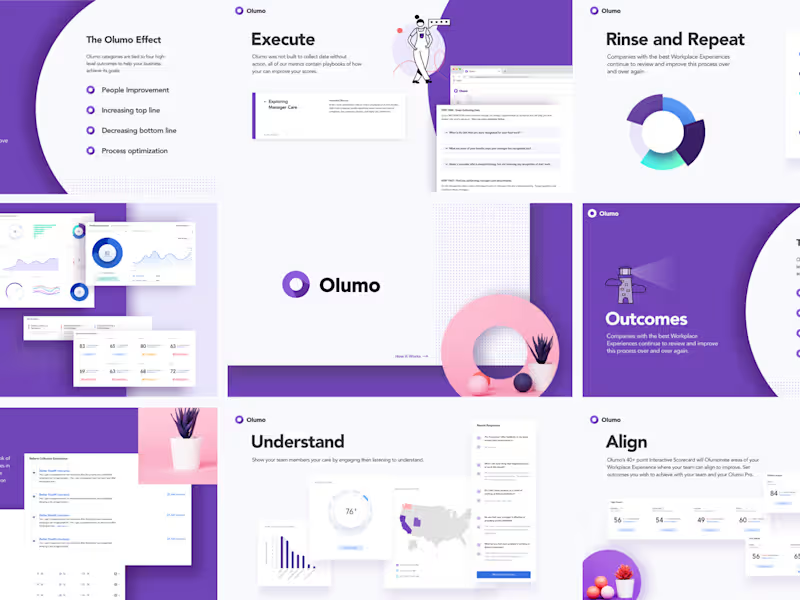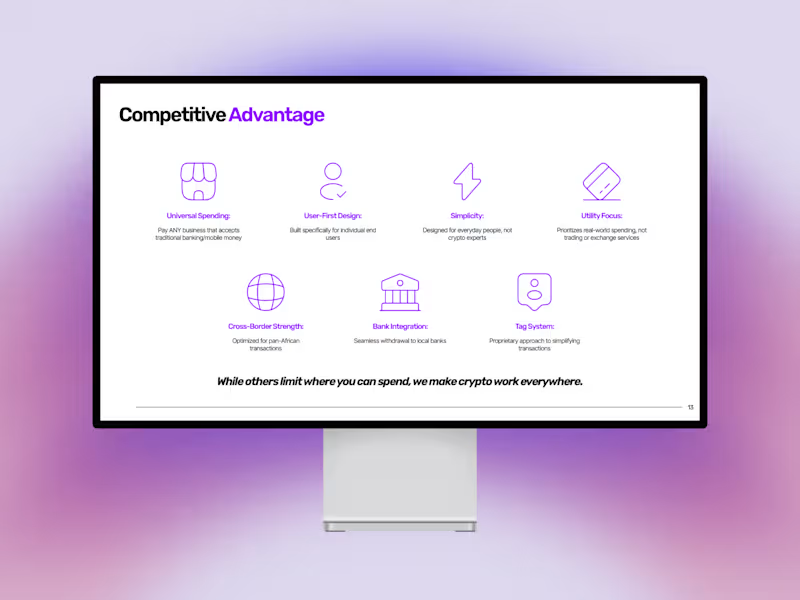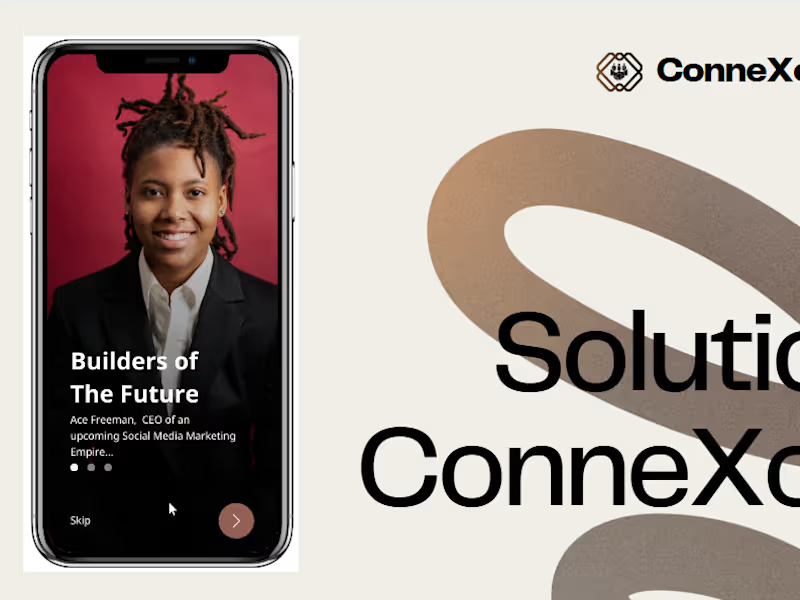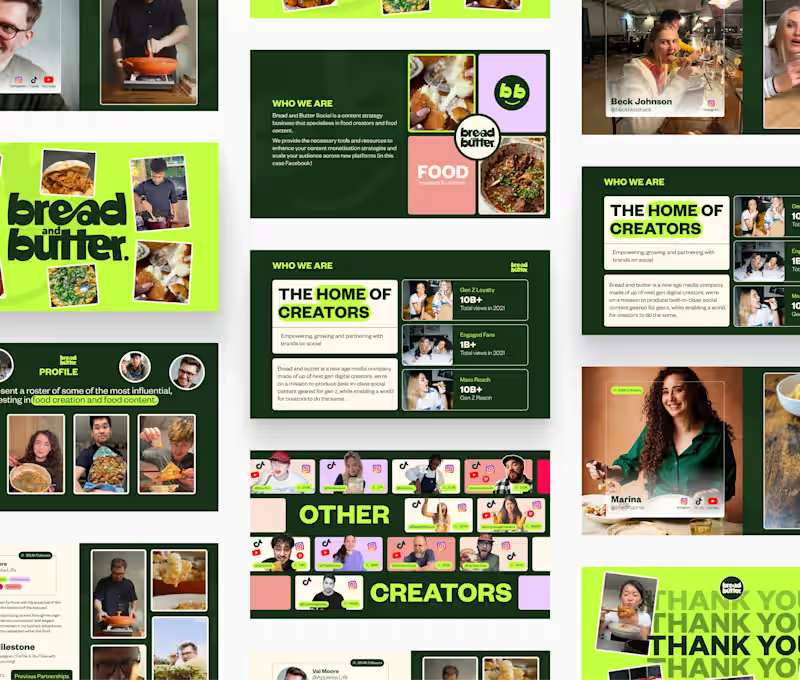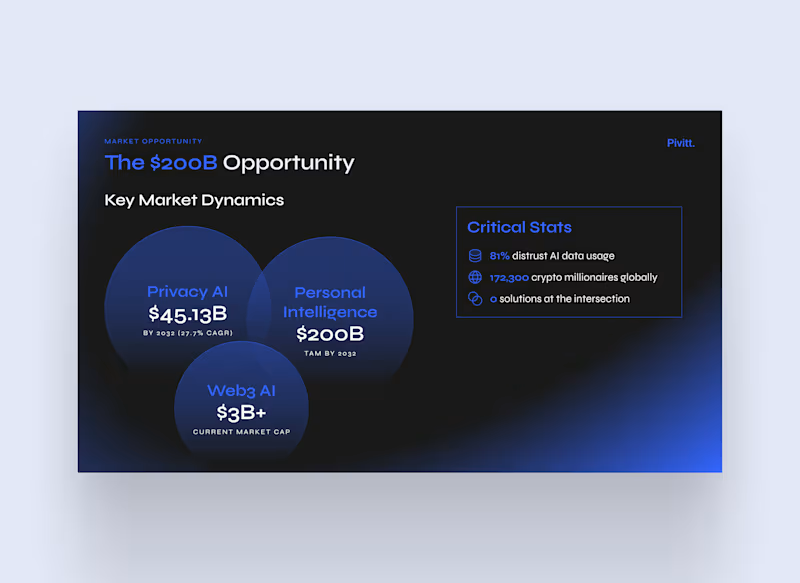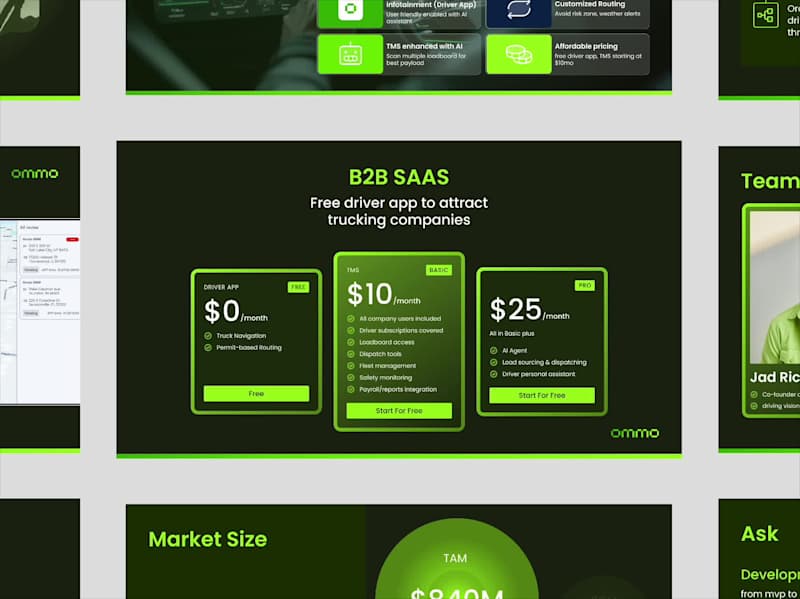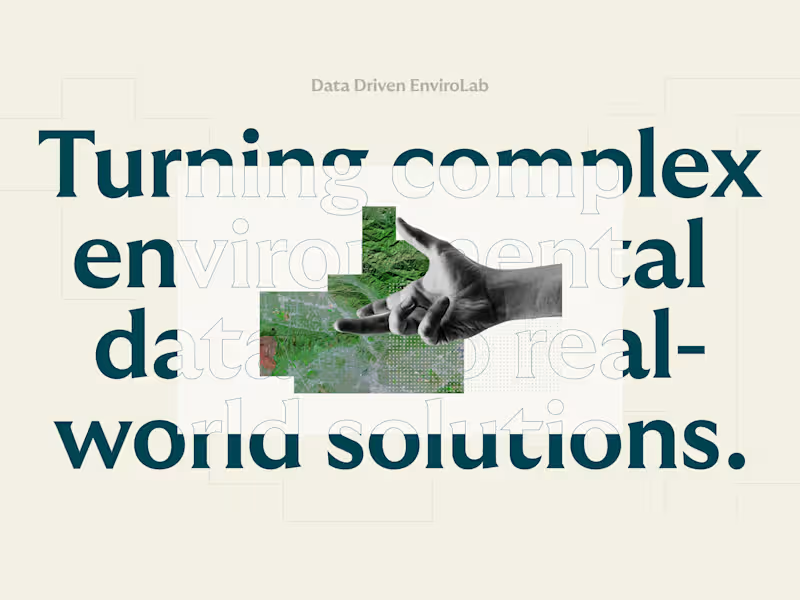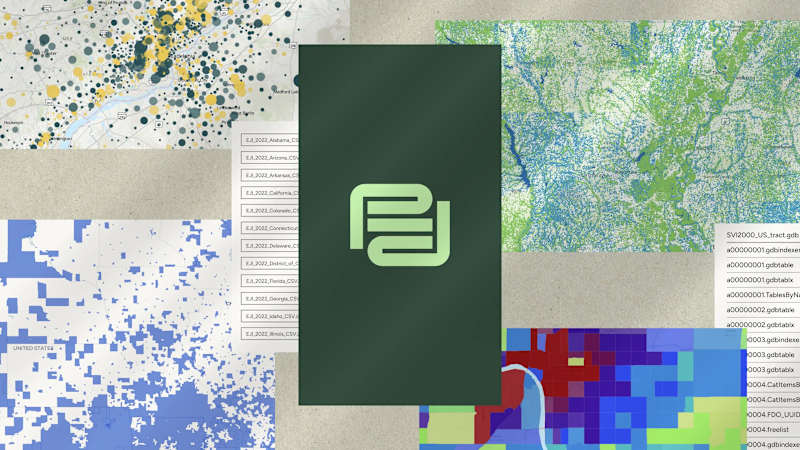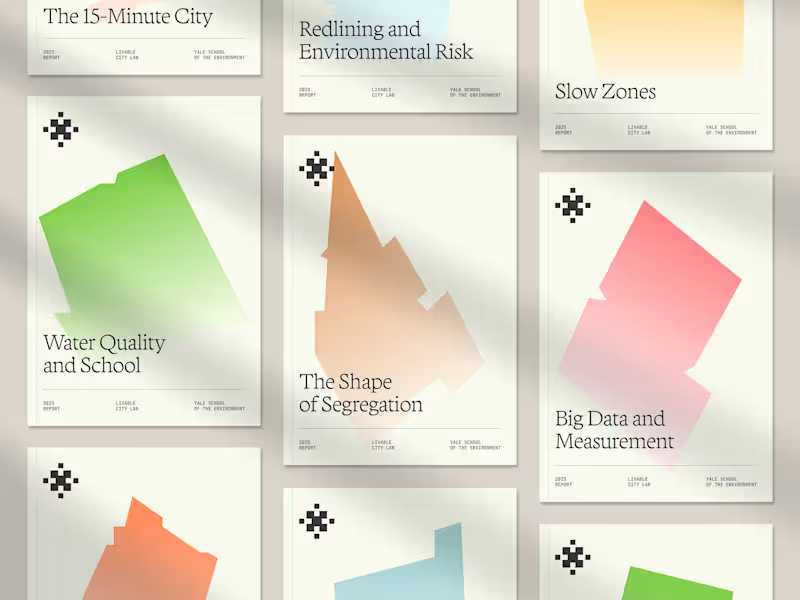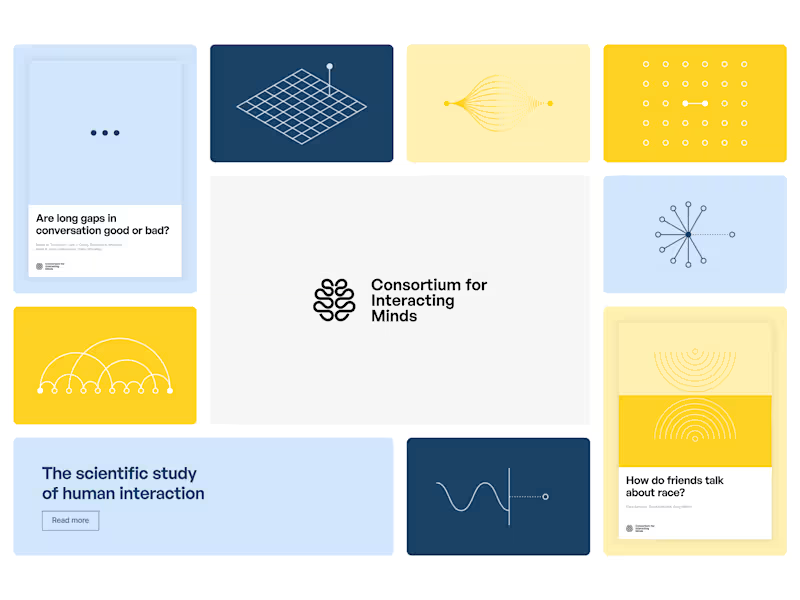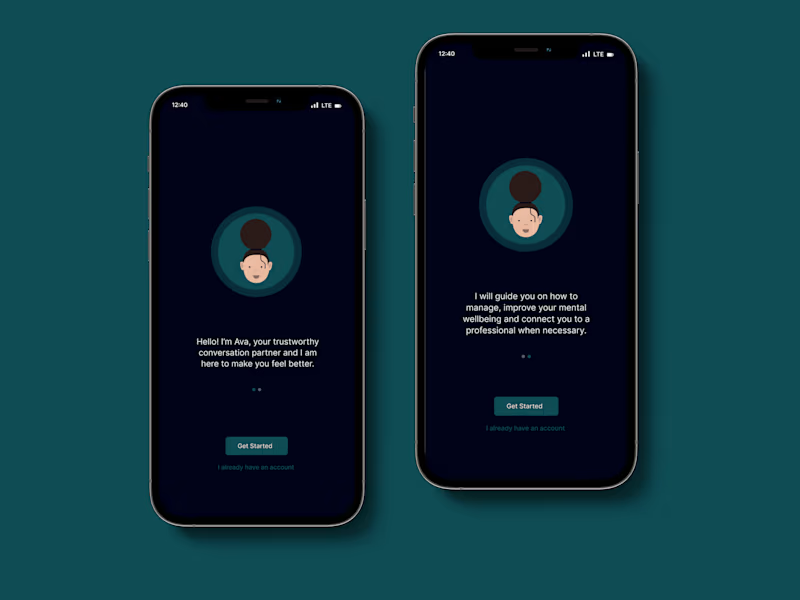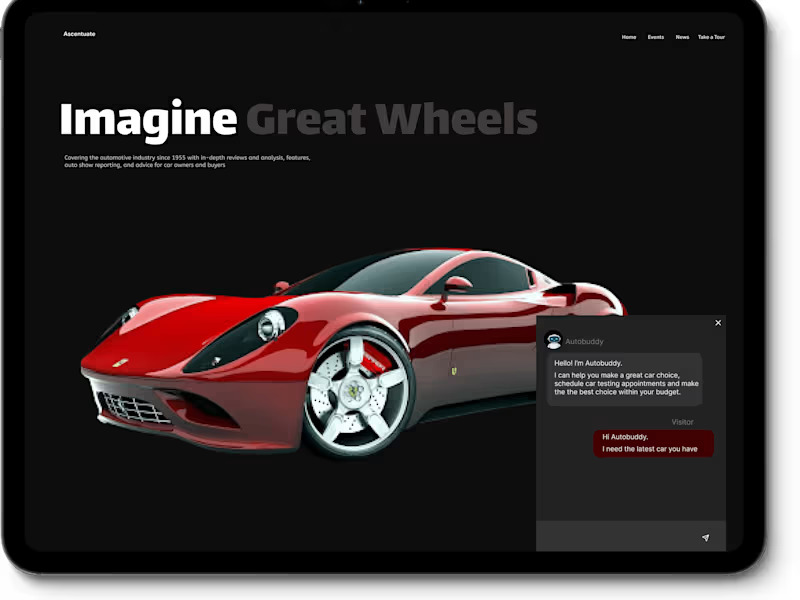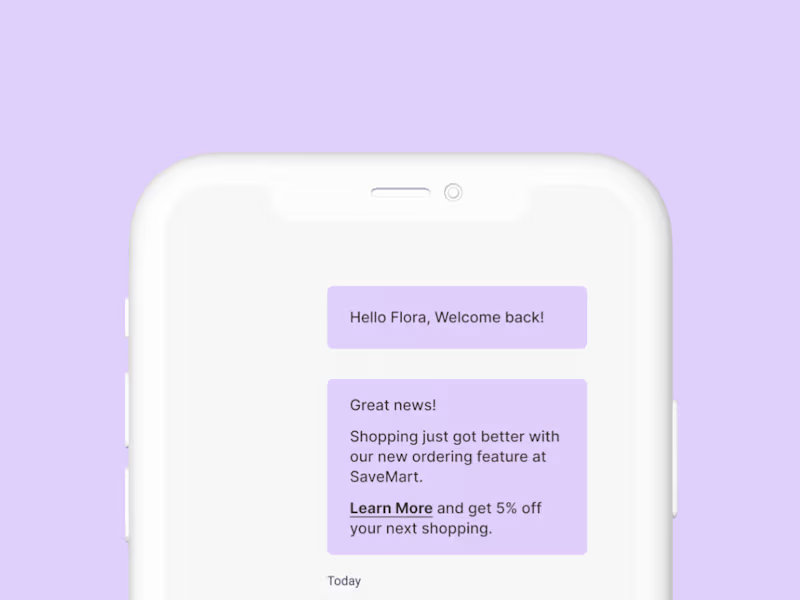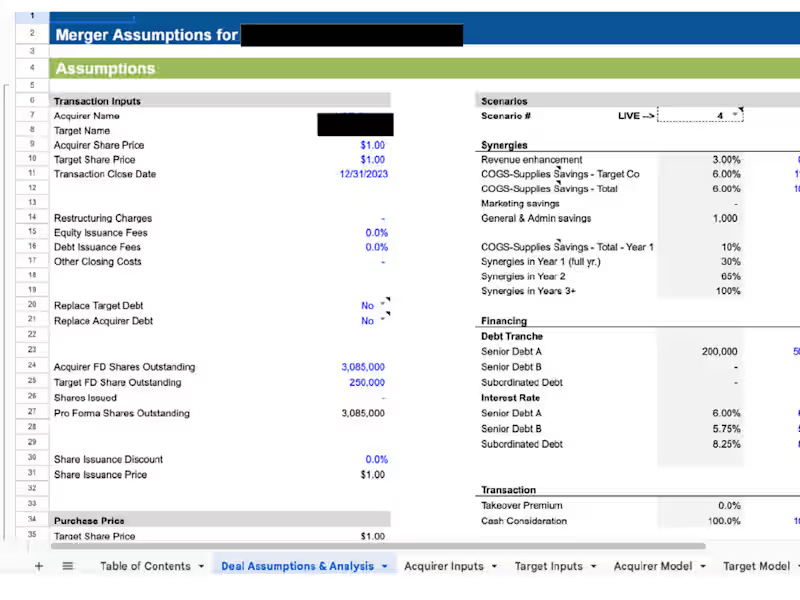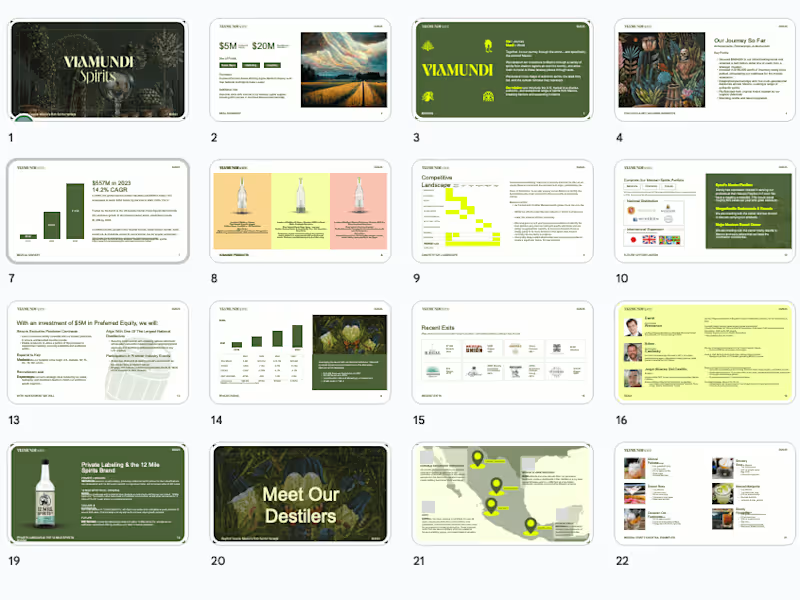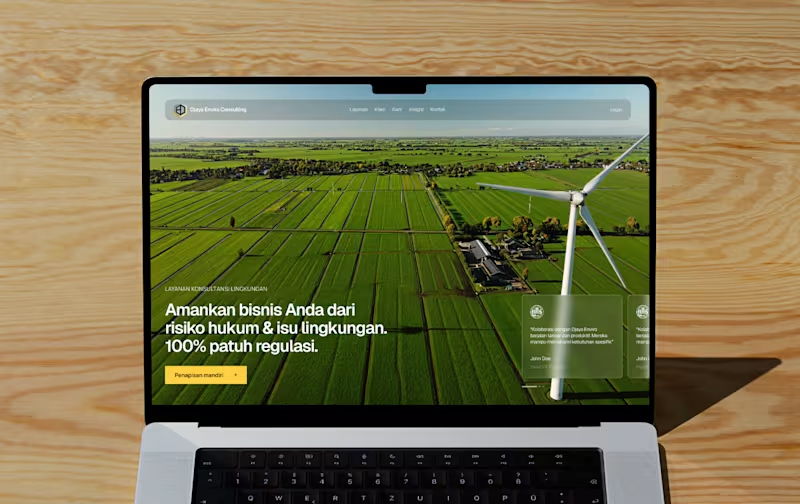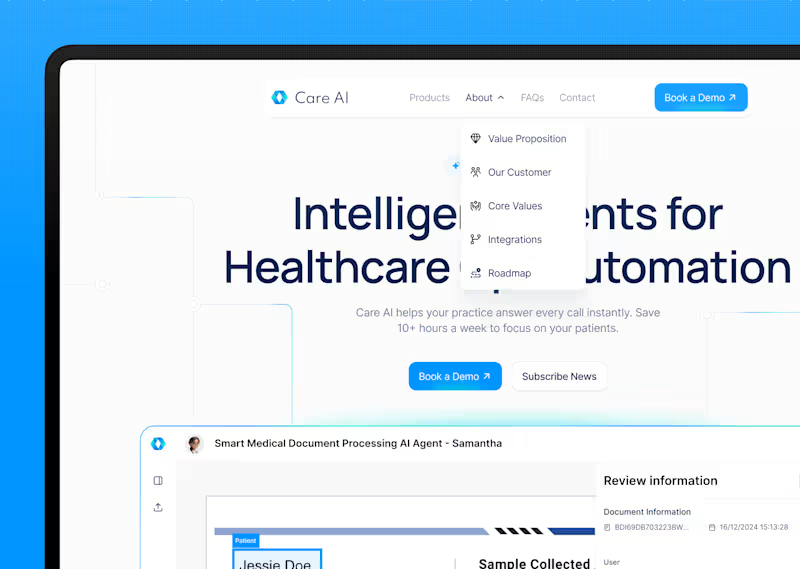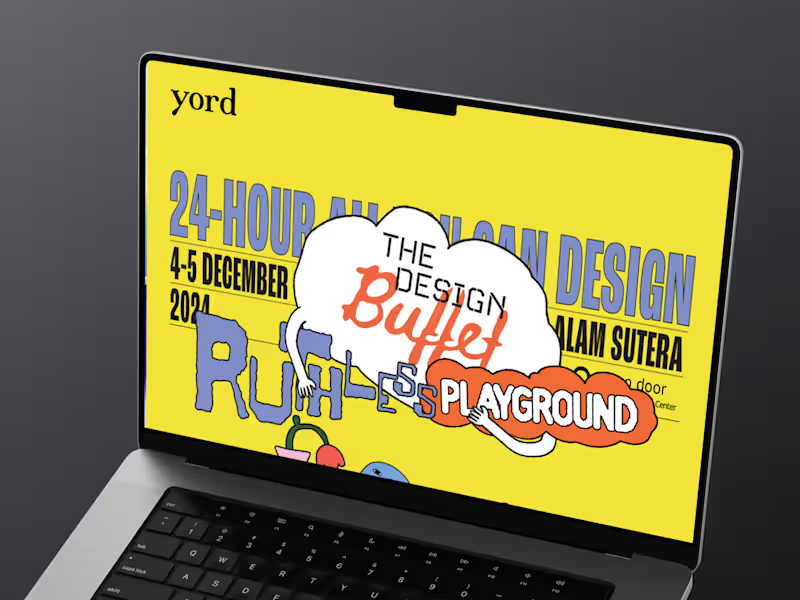Additional resources
What Are Pitch Deck Designers
Specialized Skills of Pitch Deck Designers
Difference Between General Designers and Pitch Deck Specialists
Core Responsibilities in Pitch Deck Creation
Why Hire Professional Pitch Deck Designers
Impact on Funding Success Rates
ROI of Professional Pitch Deck Design
Common Mistakes DIY Pitch Decks Make
Types of Pitch Deck Design Services Available
Individual Freelance Pitch Deck Designers
Full-Service Pitch Deck Design Agencies
Hybrid AI-Powered Design Solutions
On-Demand Design Subscription Services
How Much Does Hiring Pitch Deck Designers Cost
Hourly Rate Pricing Models
Project-Based Fee Structures
Monthly Subscription Packages
Factors That Affect Pitch Deck Design Pricing
Where to Find and Hire Pitch Deck Designers
Specialized Pitch Deck Design Agencies
Creative Talent Platforms Like Contra
Industry-Specific Design Networks
Design Agency Directories
How to Evaluate Pitch Deck Designer Portfolios
Key Portfolio Elements to Review
Industry Experience and Specialization
Visual Storytelling Capabilities
Data Visualization Expertise
Essential Questions When Hiring a Pitch Deck Designer
Question 1: What Is Your Design Process
Question 2: How Do You Handle Revisions
Question 3: What Tools and Software Do You Use
Question 4: Can You Share Client Success Stories
Question 5: How Do You Approach Brand Consistency
Pitch Deck Design Process and Timeline
Initial Consultation and Brief Development
Content Strategy and Slide Planning
Visual Design and Layout Creation
Review Cycles and Refinement
Final Delivery and File Formats
How to Work Effectively With Pitch Deck Designers
Preparing Your Content and Materials
Setting Clear Project Expectations
Providing Constructive Feedback
Managing Revision Rounds
Contract Terms When You Hire a Pitch Deck Designer
Defining Project Scope and Deliverables
Payment Structure and Milestones
Intellectual Property Rights
Confidentiality and NDAs
Common Pitfalls to Avoid When You Outsource Pitch Deck Design
Unclear Communication of Business Goals
Insufficient Budget for Quality Design
Rushing Design Timelines
Neglecting Brand Guidelines
Future Trends in Professional Pitch Deck Design
Integration of Interactive Elements
Data-Driven Design Approaches
Strategic Consulting Combined With Design
Emphasis on Investor Psychology




























